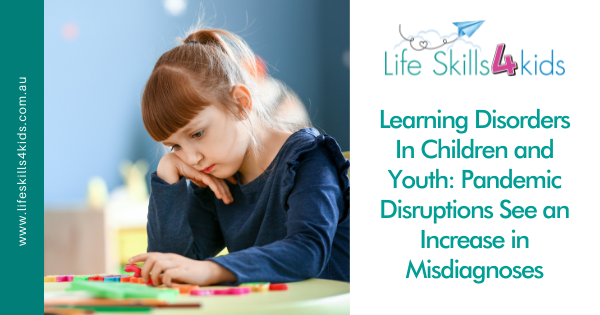Learning disorders are slipping through the cracks, according to a new study published in Nature Reviews Psychology. This is due largely to the education disruptions caused by the Covid-19 pandemic, along with social and economic factors associated with the public health measures used in response.
Students falling behind in main subjects
The study noted that children and young people with specific learning disorders such as dyslexia (reading), dyscalculia (mathematics), and dysgraphia (writing) were falling behind due to inadequate intervention, a lack of access to support services, and inaccurate diagnoses.
Learning disorders often occur in combination with other medical, psychiatric, or neurodevelopmental conditions, and statistics reveal that those diagnosed with a learning disorder are likely to be disadvantaged throughout life.
In fact, adults with a learning disorder are more likely to end up in the criminal justice system, have a higher chance of suffering from mental health problems, and have fewer social and economic opportunities.
Early intervention during childhood is critical, but the pandemic has meant that a lack of accurate diagnoses and limited access to support services is seeing children slipping through the cracks.
Loss of learning gains due to mental health
Another significant factor in the loss of learning gains has been an increase in mental health issues among children and young people. Anxiety and depression have increased among young people since the beginning of the pandemic, and students who were already struggling are experiencing significant learning loss.
School changes in response to the pandemic
As schools have been forced to adapt to remote learning, many have implemented curriculum changes. This means that for many students, the goalposts have shifted and have led to further learning loss.
In terms of diagnosis, the shift in curricula means that it is more difficult to measure and assess a student’s progress in comparison to pre-pandemic standards. Therefore, an accurate diagnosis of learning difficulties is also more difficult to achieve.
Current Diagnostic Criteria
Currently, diagnostic criteria are subject to a narrow range of conditions. A student must meet a specific set of conditions based on social, educational, behavioural and other factors that were established before the pandemic. Covid-19 has caused a seismic shift in every aspect of learning, including psychosocial, economic, educational, and intervention opportunities.
Unfortunately, the biggest impact of these changes is on the students that need help the most.
Misdiagnoses arising from inadequate information
Professionals using the Diagnostic and Statistic Manual of Mental Disorders (DSM-5) may only make a diagnosis when “difficulties in learning and using academic skills must have persisted for at least six
months despite intervention and cannot be accounted for by psychosocial adversity or inadequate instruction.”
The pandemic has furnished plenty of psychosocial adversity and inadequate instruction, giving rise to false negative diagnoses when students actually have sound evidence of learning disabilities.
At the opposite end of the scale, some children may be diagnosed with falsely positive learning disorders when uncertainty surrounds low achievement scores or apparent learning difficulties. This is partly due to the changes in school curriculum whereby normative data can no longer be used to compare pre-pandemic achievement scores.
Diagnostic Criteria Need Modification
The study’s authors argue that the diagnostic criteria used for determining a learning disability are no longer adequate in a post-pandemic space.
Given the huge impact on student learning factors, the criteria need to be both broader and more specific to address the much larger scope of needs faced by students now. Although a good start, the criteria fail to address certain specific aspects of diagnosis, along with excluding many children who fail to fit the narrow definitions.
Urgent reform is needed to bring about prompt interventions and to ensure that no child falls behind.
Alex Learns That Changes Are OK
Alex loves school. He enjoys all the activities he does during the term such as swimming and soccer. He also loves holidays and all the fun things he gets to do while he’s not at school. The problem is, Alex doesn’t like changes. His tummy gets all tight and he gets a worry cloud that comes over his brain and makes it feel foggy. When the school term ends and holidays begin or when school is about to start again, Alex feels really worried and anxious.
Alex’s Mum doesn’t want him to worry. So she does some reading and finds a really cool trick that helps Alex to feel comfortable with changes. It works! Alex is able to keep his worries under control and think about all the fun things that are coming up instead. Can you guess what Alex’s special trick is.
Alex Learns that Changes Are Okay is a beautiful book for children who find change difficult.
When you purchase the Alex Learns that Changes are OK (Flipbook), you will receive a digital flipbook that gradually changes from one page to the next while listening to high-quality audio narration as if someone is flipping and reading the book for you!


